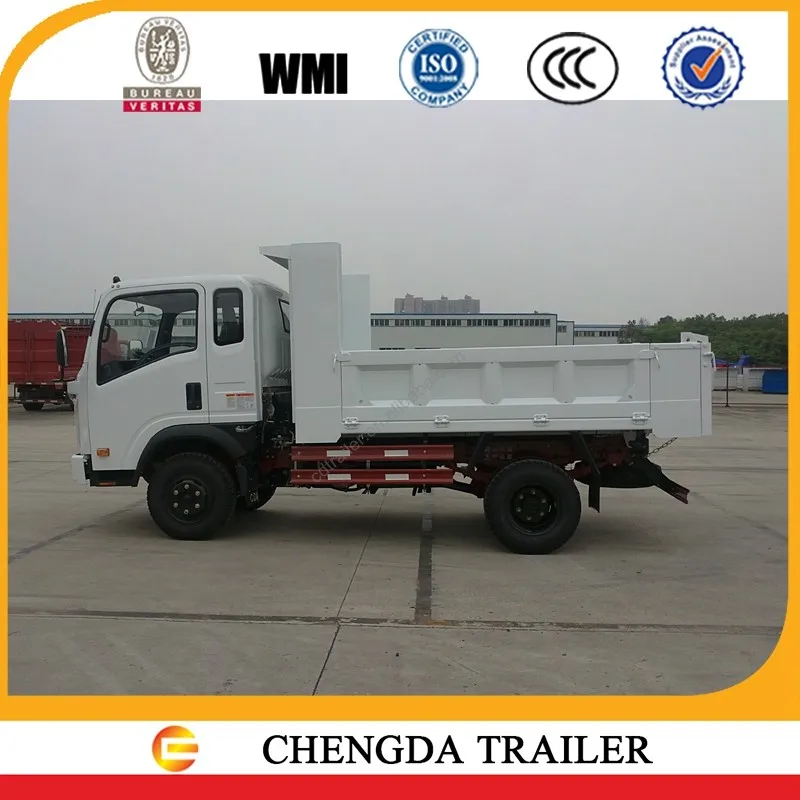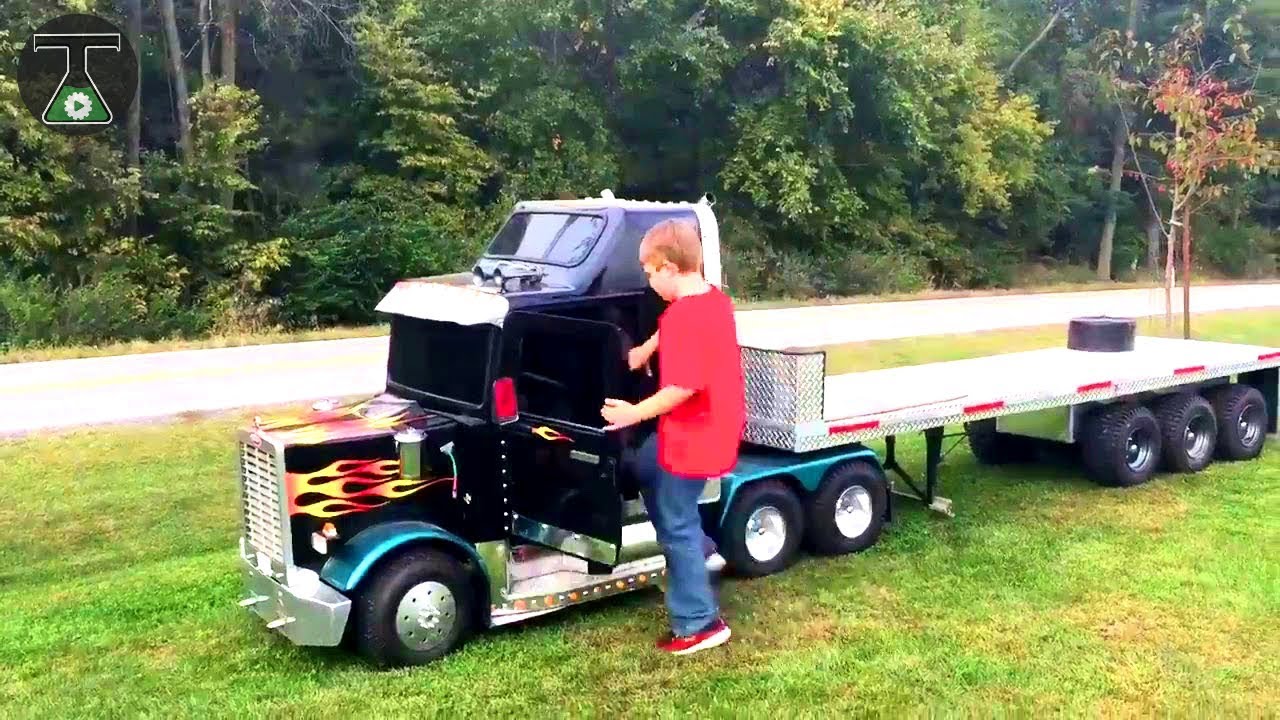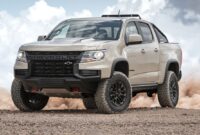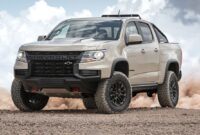Mini Semi Trucks For Sale: Your Comprehensive Guide to Smaller Hauling Power sale.truckstrend.com
In the vast landscape of commercial vehicles, where colossal Class 8 semi-trucks dominate highways, a fascinating and increasingly popular niche has emerged: the mini semi truck. Far from being toys, these compact powerhouses offer a compelling blend of robust towing capacity, enhanced maneuverability, and often, a significantly lower barrier to entry compared to their full-sized counterparts. For individuals, small businesses, and even recreational vehicle enthusiasts, a mini semi truck presents an agile and cost-effective solution for a myriad of hauling needs.
This comprehensive guide will delve into everything you need to know about mini semi trucks for sale, from understanding what they are and their multifaceted benefits, to navigating the buying process, crucial considerations, and common questions. Whether you’re an aspiring hotshot hauler, an RV owner seeking ultimate towing confidence, or a business looking for efficient local transport, the world of mini semi trucks offers a powerful and practical alternative.
Mini Semi Trucks For Sale: Your Comprehensive Guide to Smaller Hauling Power
What Exactly is a Mini Semi Truck?
The term "mini semi truck" typically refers to two main categories of vehicles, both designed to offer substantial towing capabilities in a more compact footprint than a traditional tractor-trailer:
-
Heavy-Duty Pickup Truck Conversions (Hotshot Rigs): This is the most common interpretation. These are typically Class 3 to Class 6 heavy-duty pickup trucks (e.g., Ford F-350, F-450, F-550; Ram 3500, 4500, 5500; Chevrolet/GMC 3500HD, 4500HD, 5500HD) that have been significantly modified. Modifications often include reinforced frames, upgraded suspension (often air-ride), extended fuel tanks, custom flatbeds, and robust fifth-wheel or gooseneck hitches. They are designed to pull large trailers, often for expedited freight ("hotshot" hauling), heavy equipment, or large recreational vehicles.

Smaller Medium-Duty Commercial Trucks: Less commonly referred to as "mini semis" but fitting the "smaller semi" description, these are dedicated commercial chassis trucks (e.g., Isuzu NPR, Hino 195, Fuso Canter, Ford F-650/F-750). While often seen with box truck bodies, they can be configured with fifth-wheel hitches to pull trailers, offering higher Gross Vehicle Weight Ratings (GVWRs) and often more robust commercial components than converted pickups, though typically at a higher price point and with less "personal vehicle" comfort.
For the purpose of this article, we will focus primarily on the popular and versatile heavy-duty pickup truck conversions, as they embody the "mini semi" aesthetic and utility for many buyers.

The Appeal: Why Consider a Mini Semi?
The growing popularity of mini semi trucks isn’t just a trend; it’s a testament to their inherent advantages across various applications:
- Cost-Effectiveness: Generally, the initial purchase price, fuel consumption, insurance, and maintenance costs are significantly lower than those of a Class 8 semi-truck. This makes them more accessible for owner-operators or those with specific, heavy-duty personal towing needs.
- Maneuverability: Their smaller size and tighter turning radius make them far easier to navigate in urban environments, construction sites, tight loading docks, and even RV parks where a full-size semi would struggle.
- Lower CDL Requirements: Depending on the Gross Combined Weight Rating (GCWR) of the truck and its trailer, many mini semi setups can be operated without a Commercial Driver’s License (CDL) for non-commercial use, or with a less stringent Class A CDL for commercial operations compared to Class 8 trucks.
- Versatility: From hauling hotshot freight and construction equipment to towing massive fifth-wheel RVs, car haulers, or even serving as a robust farm utility vehicle, their applications are incredibly diverse.
- Accessibility for Owner-Operators: For individuals looking to enter the hauling business without the massive capital investment of a Class 8 truck, a mini semi offers a viable and profitable entry point into the logistics industry.
- Comfort and Amenities: Based on heavy-duty pickups, many mini semis retain car-like comforts, including advanced infotainment systems, comfortable interiors, and safety features often lacking in older, larger commercial trucks.

Types and Configurations of Mini Semi Trucks
As mentioned, the primary "mini semi" often refers to a heavily modified heavy-duty pickup. Here’s a breakdown of common configurations:
-
Pickup Truck Conversions (Hotshot Style):
- Base Vehicles: Ford F-350/450/550, Ram 3500/4500/5500, Chevy/GMC 3500HD/4500HD/5500HD. The F-450/550 and Ram 4500/5500 models are particularly popular due to their factory-enhanced frames, brakes, and higher Gross Vehicle Weight Ratings (GVWRs) than their 350/3500 counterparts.
- Key Modifications:
- Fifth-Wheel/Gooseneck Hitch: Essential for towing heavy trailers.
- Air Ride Suspension: Crucial for a smooth ride, load leveling, and protecting cargo. Often includes a separate air compressor.
- Auxiliary Fuel Tanks: Extending range is vital for long hauls.
- Custom Flatbeds: Replacing the standard pickup bed for improved functionality, often with storage boxes and D-rings.
- Upgraded Braking Systems: Enhanced brake controllers, often with exhaust brakes or engine brakes for better control on descents.
- Dually Conversions: If not factory dually, adding rear dual wheels for stability and increased tire capacity.
- Tires: Heavy-duty commercial tires rated for the expected loads.
- Applications: Hotshot freight, RV transport, heavy equipment towing, livestock trailers, car haulers.
-
Medium-Duty Chassis (Less Common "Mini Semi"):
- Base Vehicles: Isuzu NPR, Hino 195, Fuso Canter, Ford F-650/F-750.
- Configuration: These are typically cab-chassis vehicles that can have a fifth-wheel plate installed. They offer higher GVWRs and GCWRs than converted pickups, putting them closer to true commercial vehicle capabilities.
- Applications: Local delivery, specialized utility, heavier industrial hauling where maneuverability is still key.
Key Considerations Before Buying
Purchasing a mini semi truck is a significant investment. Careful consideration of these factors will help ensure you make the right choice:
- Primary Purpose: What will be its main job? Hotshot hauling, RV transport, equipment hauling, or personal use? Your answer will dictate the required towing capacity, engine type, and necessary modifications.
- Towing Capacity & GCWR: Understand the truck’s Gross Combined Weight Rating (GCWR) – the maximum allowable weight of the truck, its cargo, and the loaded trailer. Ensure it significantly exceeds your heaviest anticipated load. Don’t just look at manufacturer "max tow" numbers; consider the actual equipped truck and trailer.
- Engine & Transmission: For heavy towing, a robust diesel engine (e.g., Cummins, Power Stroke, Duramax) is almost mandatory. Look for reliable, high-torque engines. Paired with a heavy-duty automatic transmission (like an Allison or Aisin), this combination provides durability and smooth power delivery.
- Suspension System: Air ride suspension is highly recommended for comfort, stability, and load leveling, especially when dealing with varying trailer weights. Check its condition and maintenance history.
- Brakes: Upgraded brakes are paramount. Ensure the truck has strong disc brakes on all four wheels and a reliable exhaust or engine brake for controlled descents with heavy loads.
- Legal & Licensing Requirements: This is critical.
- CDL: If your GCWR exceeds 26,000 lbs (and the trailer is over 10,000 lbs) AND you’re using it commercially, a Class A CDL is typically required. For non-commercial use (e.g., personal RV hauling), rules vary by state but often allow higher weights without a CDL. Always verify state and federal regulations for your specific use case.
- DOT Regulations: If operating commercially, be aware of Department of Transportation (DOT) regulations, including vehicle inspections, Hours of Service (HOS), and Electronic Logging Devices (ELDs).
- IFTA/IRP: For interstate commercial travel, you’ll need to register for International Fuel Tax Agreement (IFTA) and International Registration Plan (IRP) plates.
- Maintenance & Parts Availability: Diesel engines and specialized components require specific maintenance. Research the availability and cost of parts and qualified mechanics in your area.
- Insurance: Insuring a commercial-use mini semi or a heavily modified vehicle can be more complex and costly than standard vehicle insurance. Get quotes early in your search.
- Budget: Beyond the purchase price, factor in registration, insurance, immediate maintenance, potential upgrades, and ongoing fuel and repair costs.
Where to Find Mini Semi Trucks For Sale
The market for mini semi trucks is robust, with several avenues for finding your ideal rig:
- Online Marketplaces:
- TruckPaper.com, CommercialTruckTrader.com: Excellent resources for both new and used commercial vehicles, including hotshot setups.
- eBay Motors, Craigslist, Facebook Marketplace: Can yield private sellers and good deals, but require more caution and due diligence.
- Dealerships:
- Heavy-Duty Pickup Dealers: Many Ford, Ram, and GM dealerships that sell F-450/550 or Ram 4500/5500 models may have pre-built hotshot packages or can facilitate custom builds.
- Used Commercial Truck Dealers: Often have a selection of well-maintained used mini semis that were previously part of a fleet.
- Specialized Custom Builders: Companies that specialize in converting heavy-duty pickups into hotshot rigs or RV haulers (e.g., Freightliner SportChassis, Renegade, or smaller custom shops). These offer new builds with warranties.
- Auctions: Government surplus, fleet liquidations, and commercial vehicle auctions can be sources, but "buyer beware" is paramount as vehicles are sold as-is.
- Industry Forums & Groups: Online forums and Facebook groups dedicated to hotshot trucking or RV transport are great places to find private sales and get recommendations.
Tips for a Successful Purchase
To ensure you drive away with a reliable and suitable mini semi, follow these practical tips:
- Perform a Thorough Pre-Purchase Inspection (PPI): This is non-negotiable, especially for used vehicles. Hire an independent, qualified mechanic specializing in diesel trucks to inspect the engine, transmission, frame, suspension, brakes, and all modifications. Look for signs of abuse, poor repairs, or rust.
- Verify Documentation: Ensure the title is clear and matches the VIN. Request all available service records to understand the vehicle’s maintenance history.
- Test Drive Extensively: Drive the truck both empty and, if possible, with a load. Pay attention to how it shifts, brakes, handles, and any unusual noises. Check all lights, gauges, and accessories.
- Understand Modifications: If the truck is a conversion, ensure all modifications were performed professionally and are well-documented. Poorly executed modifications can be dangerous and costly to fix.
- Negotiate Wisely: Research market values for similar vehicles. Don’t be afraid to negotiate on price, especially if the PPI reveals minor issues.
- Budget for Post-Purchase Expenses: Account for sales tax, registration fees, insurance, and any immediate maintenance or repairs identified during the inspection. You might also want to budget for initial upgrades like a good set of tires or additional lighting.
Challenges and Solutions
While mini semi trucks offer numerous advantages, potential buyers should be aware of certain challenges:
- Challenge: Misunderstanding Legal Requirements. Many buyers underestimate the complexities of CDL, DOT, and IFTA regulations, especially when transitioning from personal vehicle ownership.
- Solution: Thoroughly research federal and state laws specific to your intended use (commercial vs. personal, interstate vs. intrastate) and the vehicle’s GCWR. Consult with commercial vehicle experts or your state’s DMV.
- Challenge: Overlooking Maintenance Needs. These are heavy-duty vehicles, and their maintenance schedules and costs will be higher than a standard pickup.
- Solution: Factor in a dedicated budget for regular maintenance, including oil changes, tire rotations, brake inspections, and diesel specific maintenance (DEF, fuel filters). Keep detailed service records.
- Challenge: Resale Value of Highly Customized Units. While desirable for a specific niche, highly unique or excessively modified trucks might have a smaller pool of potential buyers later on.
- Solution: Stick to proven, professionally done modifications. Keep documentation of all work performed. A well-maintained, standard hotshot conversion will generally hold its value better.
Mini Semi Trucks For Sale: Estimated Price Guide
The price of a mini semi truck can vary wildly depending on its age, condition, base model, specific modifications, and whether it’s a new custom build or a used vehicle. This table provides a general estimate:
| Type/Condition | Base Truck Model Examples | Typical Price Range | Key Features/Considerations |
|---|---|---|---|
| Used Hotshot (Basic) | Ford F-350/Ram 3500 (older models) | $30,000 – $60,000 | Higher mileage, older model year (2000s-early 2010s), basic fifth wheel, minimal custom modifications. May require immediate maintenance. |
| Used Hotshot (Premium) | Ford F-450/550, Ram 4500/5500 | $60,000 – $120,000 | Newer model year (mid-2010s to early 2020s), lower mileage, air ride suspension, auxiliary fuel, custom bed, well-maintained. Ready to work or haul. |
| New Custom Build | Ford F-550, Ram 5500, Chevy 5500 (new) | $120,000 – $250,000+ | Brand new chassis, fully customized to buyer’s specifications (e.g., luxury interior, extensive storage, advanced electronics), warranty. Top-tier performance and comfort. |
| Used Medium-Duty | Isuzu NPR, Hino 195, Fuso Canter | $25,000 – $70,000 | Used commercial chassis, typically higher mileage but robust. May need fifth-wheel installation. Less "mini" aesthetic, more utilitarian. |
| New Medium-Duty | Ford F-650/750, Hino 338 | $90,000 – $180,000+ | New commercial chassis, often higher GVWR/GCWR, more robust components. Can be built to spec for specific commercial hauling. |
Note: These prices are estimates and can fluctuate based on market demand, location, specific truck condition, and included features.
Frequently Asked Questions (FAQ)
Q: Do I need a CDL to drive a mini semi truck?
A: It depends on the Gross Combined Weight Rating (GCWR) of the truck and trailer, and whether you are using it for commercial purposes. Generally, if the GCWR is under 26,001 lbs, a CDL is not required for non-commercial (personal) use. For commercial use, if the GCWR exceeds 26,001 lbs (and the trailer is over 10,000 lbs), a Class A CDL is typically required. Always verify with your state’s Department of Motor Vehicles and federal regulations (DOT).
Q: Are mini semis fuel-efficient?
A: Relative to a Class 8 semi-truck, yes, they are more fuel-efficient. However, they are less efficient than a standard pickup truck. Fuel economy heavily depends on the load, terrain, and driving style, but you can generally expect anywhere from 8 to 15 miles per gallon (MPG).
Q: Can a mini semi really tow a large RV or heavy equipment?
A: Absolutely. Many mini semis, especially the highly modified heavy-duty pickup conversions, are specifically designed for this purpose. Their enhanced frames, powerful diesel engines, and specialized hitches allow them to safely and effectively tow large fifth-wheel RVs, Super C motorhomes, multi-car haulers, and various types of heavy construction or agricultural equipment.
Q: What’s the difference between a "hotshot truck" and a "mini semi"?
A: The terms are often used interchangeably, but "hotshot" primarily refers to the type of expedited freight business (smaller, time-sensitive loads) that these trucks are commonly used for. A "mini semi" refers to the vehicle itself—a heavy-duty pickup truck that has been modified to resemble and function like a smaller semi-truck. So, a hotshot truck is typically a type of mini semi.
Q: What are the common pitfalls when buying a used mini semi?
A: Common pitfalls include purchasing a truck with poorly done or undocumented modifications, neglecting to get a pre-purchase inspection (leading to unexpected repairs), not understanding the truck’s true Gross Combined Weight Rating (GCWR) capabilities, and failing to research the legal and licensing requirements for your intended use. Always perform thorough due diligence.
Conclusion
Mini semi trucks represent a dynamic and increasingly vital segment of the hauling market. Offering a compelling blend of power, maneuverability, and cost-effectiveness, they empower a diverse range of users—from independent hotshot owner-operators and dedicated RV enthusiasts to small businesses requiring robust local transport solutions.
The journey to acquiring your ideal mini semi involves careful research, a clear understanding of your specific needs, and a thorough inspection process. By considering factors like towing capacity, engine type, legal requirements, and budget, you can navigate the market confidently. With the right mini semi, you’ll gain not just a vehicle, but a versatile and powerful partner capable of tackling substantial loads with surprising agility, opening up new possibilities for both work and play.




